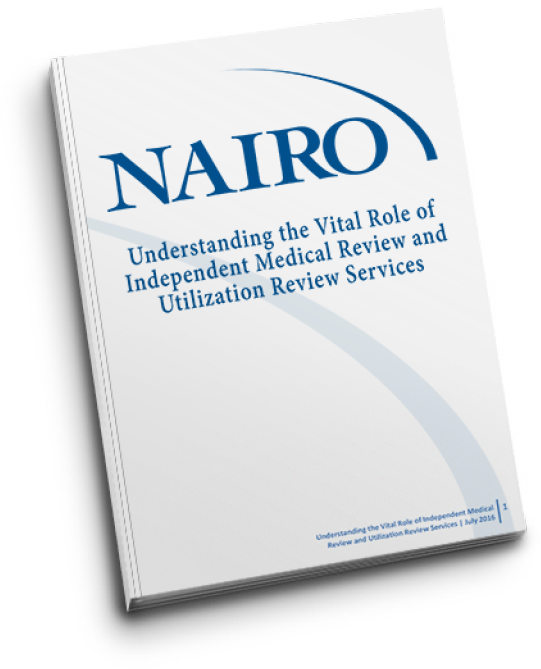DEFINING IROWHAT IS AN IRO?Within the health care industry, an independent review organization (IRO) acts as a third-party medical review resource which provides objective, unbiased medical determinations that support effective decision making, based only on medical evidence. IROs deliver conflict-free decisions that help clinical and claims management professionals better allocate healthcare resources. By applying independent medical peer review, patients and insurance companies can often avoid repetitive, unnecessary or invasive procedures that ultimately do not benefit the patient. As the complexity of medical treatment increases, medical peer review and IROs are becoming a valuable resource for insurance companies and their patients. The independent medical peer review process provides peer reviewed, evidence-based clinical determinations for all parties involved with the case under review. BENEFITS OF USING AN IROThe continuous evolution of the healthcare industry and standards of care are astounding. Healthcare organizations can reduce their liability, improve their customer service and efficiency, and ensure legal compliance through the use of an IRO. Companies who utilize an IRO typically experience the following benefits:
URAC standards assure that organizations that facilitate independent medical peer review are free from conflicts of interest, establish qualifications for clinical reviewers, address medical necessity and experimental treatment issues, have reasonable time periods for standard and expedited reviews, and appeals processes. Firms with URAC accreditation – a prerequisite for Full or Associate NAIRO membership – strive for a fair and impartial medical peer review process that is of benefit to companies, patients, and physician reviewers. UNDERSTANDING THE ROLE
IROS FOR PAYORS AND PRE-AUTHORIZATIONAny company working within the healthcare industry to provide either payment services or pre-authorization of treatments will benefit from engaging the services of an independent review organization (IRO). Companies that typically use IROs for independent medical peer review include:
Other types of insurers that use IRO services for independent medical reviews include:
Different types of organizations in a wide variety of markets are utilizing independent review organizations to decide, adjudicate and authorize health care claims. In addition to various types of insurers, hospitals and medical practices wanting to raise the quality of care and improve patient safety are systematically outsourcing medical peer review to IROs. These organizations know that they can get an objective non-conflicted decision and fast turnaround on quality of care issues. IROs have become an accepted best practice by organizations of every shape and size that participate in managing care for patients. HOW DO PLAN ENROLLEES REQUEST AN INDEPENDENT MEDICAL REVIEW?When it comes to requesting independent medical review, the laws surrounding patient rights often vary by state, and the IROs serving those states and payors also vary. Most enrollees should contact their insurance plan to initiate the appeal process leading to an independent medical review. “All consumers have the right to a fair and efficient process for resolving differences with their health plans, health care providers, and the institutions that serve them, including a rigorous system of internal review and an independent system of external review.” – President’s Advisory Commission on Consumer Protection and Quality in the Health Care Industry [www.hcqualitycommission.gov]. Following are links to information which may help:
Also, NAIRO has assembled a Patient Rights FAQ with common questions on process and terminology. |


